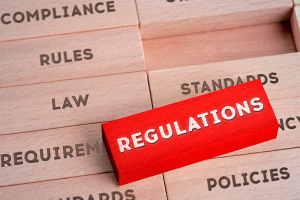Group publishes new hazardous drug handling standard
USP publishes new standard for handling hazardous drugs in health care settings
The United States Pharmacopeial Convention (USP) published a new standard as part of a suite of health care quality standards included in the "United States Pharmacopeia-National Formulary." The new general chapter, "<800> Hazardous Drugs — Handling in Healthcare Settings" was developed to help protect personnel and patients, and reduce the risk of residual exposure in health care settings. It applies to all health care personnel (i.e., physicians, nurses, veterinarians, pharmacists and technicians) and all health care facilities where hazardous drugs are handled or manipulated, including their storage and distribution. The new rule will be fully implemented in July 2018.
"Health care workers are on the front line of protecting patients and consumers from the risks of hazardous drugs, but are also themselves at risk," says Jaap Venema, Ph.D., executive vice president and chief science officer of USP. "Each year, approximately 8 million health care workers in the United States are potentially exposed to hazardous drugs. Practitioners frequently are unaware of the scope of the risk or the measures that should be taken to reduce such risk. The new standard defines processes intended to minimize exposure to hazardous drugs in health care settings, thereby protecting health care workers as well as patients."
Read more about USP 800 and complying with USP 797.
CDC issues Ebola planning guidance for interfacility transport
CDC and partners from the Federal Interagency Committee on Emergency Medical Services developed "Interim Guidance for Emergency Medical Services (EMS) Systems and 9-1-1 Public Safety Answering Points for Management of Patients with Known or Suspected Ebola Virus Disease in the United States."
The document provides guidance for developing plans for personnel, including ground and air medical transport providers, as well as managers of EMS agencies, EMS medical directors, local and state EMS systems, local and state health departments, health care facilities, and others involved in the interfacility (including intrastate or interstate) transport of or patients with suspected or confirmed Ebola. The guidance also lists three separate standard operating procedure appendices. They include:
- Patient Handoff between a Healthcare Facility and a Transporting Ambulance
- Decontamination of an Ambulance that has Transported a Person under Investigation or Patient with Confirmed Ebola
- Air-to-Ground Patient Handoff
FDA updates information on validated duodenoscope reprocessors
The Food and Drug Administration posted updated information on which makers of automated endoscope reprocessors for duodenoscopes have completed validation testing with adequate results. So far, three models from two manufacturers have been added to the list. The agency requested validation testing from manufacturers following a series of patient infections associated with duodenoscopes that were not cleaned properly.
Groups partner to expand site accreditation across clinical research facilities
Guidestar Clinical Trials Management and the Alliance for Clinical Research Excellence and Safety have partnered to expand site accreditation and uniformity at clinical research facilities. The group is collecting and developing standards for research sites with the goal of establishing an independent third-party accreditation system.
Joint Commission adds Zika infection control resources
The Joint Commission developed a portal containing infection control guidelines and facts regarding Zika virus. The resources were compiled from the Centers for Disease Control and Prevention, World Health Organization and the National Institutes of Health.
Congress introduces new Medicare telehealth bill
Members of Congress introduced legislation to expand access to telehealth and remote patient monitoring services in Medicare. The CONNECT for Health Act would remove most Medicare restrictions on telehealth and remote patient monitoring reimbursement for participants in a new "bridge program. "Sponsors say the bill will help providers to transition to the goals of the Medicare Access and CHIP Reauthorization Act of 2015 and the Merit-based Incentive Payment System.
OSHA seeks comments on updated Safety and Health Program Management Guidelines
The Occupational Safety and Health Administration is extending the public comment period on an updated version of its voluntary Safety and Health Program Management Guidelines. The comment period will close Feb. 22.




